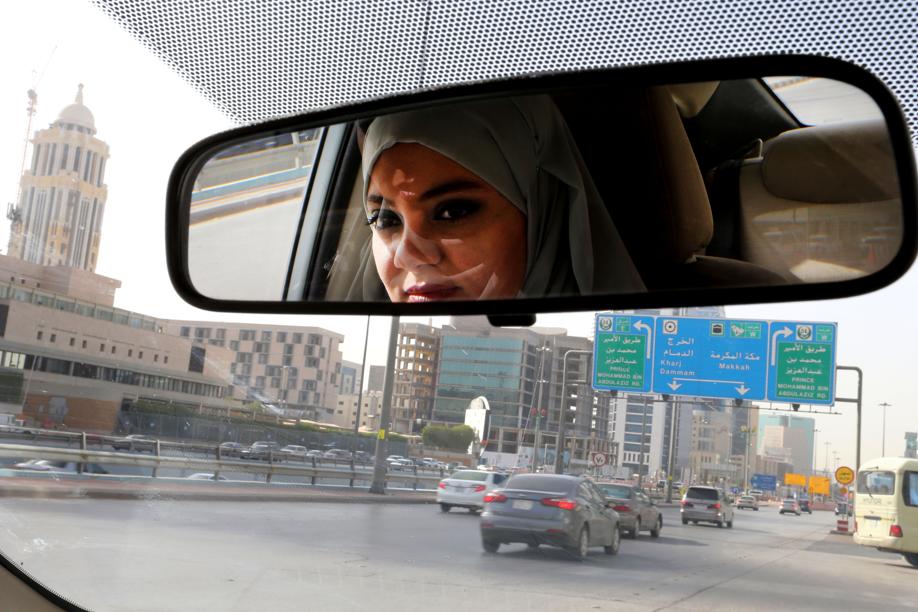
RIYADH, Saudi Arabia — Saudi women steered their way through busy city streets on Sunday, driving to work, running errands, and relishing a new era in which they are allowed to drive and no longer need to rely on men to move around.
A longstanding ban on women driving was lifted at midnight, a historic moment for women who have depended on their husbands, fathers, brothers, and drivers for transportation.
The ban had relegated women to the backseat, restricting when they could meet friends, where they could spend their time, and how they could plan their day.
‘‘It feels beautiful. It was a dream for us, so when it happens in reality I am between belief and disbelief — between a feeling of joy and astonishment,’’ said Mabkhoutah al-Mari as she pulled up at a drive-through to order coffee on her way to work.
The 27-year-old mother of two is a driving instructor for women and already had a driver’s license from the United States, where she had spent time in Tennessee studying. But on this morning, she drove freely in her hometown of Riyadh for the first time.
For most of her life Mari relied on drivers hired by her family, and she and her sisters had to coordinate drop-offs and pickups.
‘‘Now, thanks to God, I can plan out my own schedule and my errands and my daughters’ errands,’’ Mari said.
Before she got in the car to drive Sunday morning, her older brother sent her off with a kiss on the forehead and a wave. His support, as her male guardian, is key.
Although women do not need male permission to obtain a driver’s license, the culture still dictates that fathers, husbands, and brothers have final say. A woman’s male guardian must give his approval before she can marry or travel.
The kingdom’s guardianship laws are based on a strict interpretation of Shariah law. In many aspects of life, women remain legal dependents, regardless of their ages, education level, or marital status.
For nearly three decades, outspoken Saudi women and men had called for women to have the right to drive as a symbol of other changes they said were needed in the deeply conservative country.
While there was never explicitly a law against women driving in Saudi Arabia, a ban was enforced by police and licenses were not issued to women. The ban had been a stain on the country’s reputation and hindered women’s ability to contribute to the economy.
In 1990, during the first driving campaign by activists, women who drove in Riyadh lost their jobs and were barred from traveling abroad, even as women in other conservative Muslim countries drove freely. Even their husbands faced punishment.
Ultraconservatives in Saudi Arabia had warned against women driving, saying it would lead to sin and expose women to harassment. Ahead of lifting the ban, the kingdom passed a law against sexual harassment with up to five years in prison for the most severe cases.
Since King Salman announced that women would be allowed to drive, Saudi clerics have changed their tone. On Sunday, the country’s senior clerics said women driving was religiously permissible and in the interests of the country.
With unequivocal state-backed support for the change, more Saudis are embracing the move as long overdue.
‘‘I’m speechless. I’m so excited it’s actually happening,’’ said Hessah al-Ajaji, who drove her family’s Lexus in the capital, Riyadh, at the stroke of midnight when the ban came to an end.
As for male drivers on the road, ‘‘they were really supportive and cheering and smiling,’’ she said.



